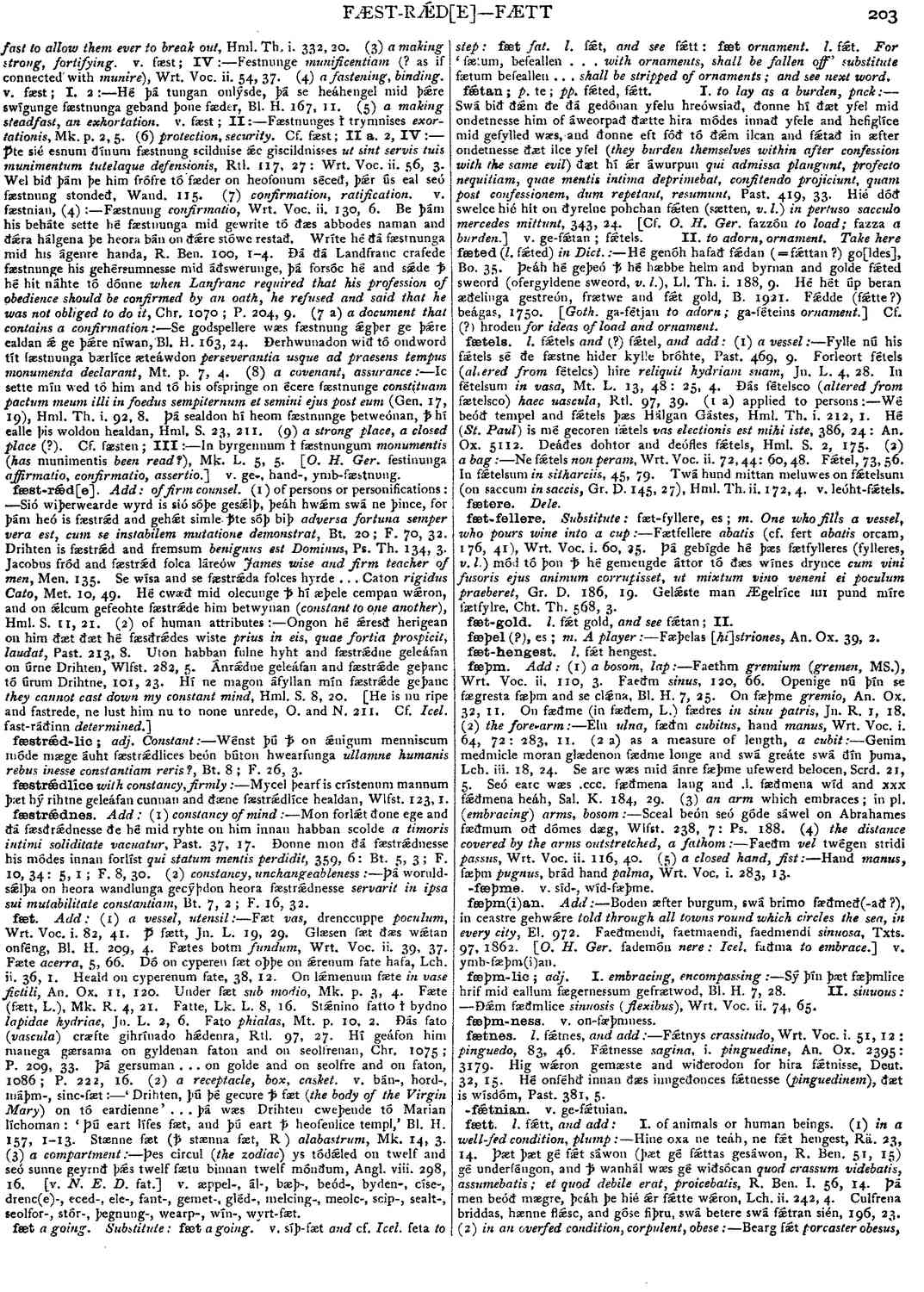fǽtan
- verb [ weak ]
-
Swá bið ðǽm ðe ðá gedónan yfelu hreówsiað, ðonne hí ðæt yfel mid ondetnesse him of áweorpað ðætte hira módes innað yfele and hefiglíce mid gefylled wæs, and ðonne eft fóð tó ðǽm ilcan and fǽtað in æfter ondetnesse ðæt ilce yfel
(they burden themselves within after confession with the same evil)
ðæt hí ǽr áwurpun
qui admissa plangunt, profecto nequitiam, quae mentis intima deprimebat, confitendo projiciunt, quam post confessionem, dum repetant, resumunt,
- Past. 419, 33 .
-
Hié dóð swelce hié hit on ðyrelne pohchan fǽten (sætten, v. l.)
in pertuso sacculo mercedes mittunt,
- 343, 24.
-
Hé genóh hafað fǽdan ( = fǽttan ?) go[ldes],
- Bo. 35 .
-
Þeáh hé geþeó ꝥ hé hæbbe helm and byrnan and golde fǽted sweord (ofergyldene sweord, v. l.),
- Ll. Th. i. 188, 9 .
-
Hé hét úp beran æðelinga gestreón, frætwe and fǽt gold,
- B. 1921 .
-
Fǽdde (fǽtte?) beágas,
- 1750.
Bosworth, Joseph. “fǽtan.” In An Anglo-Saxon Dictionary Online, edited by Thomas Northcote Toller, Christ Sean, and Ondřej Tichy. Prague: Faculty of Arts, Charles University, 2014. https://bosworthtoller.com/44463.
Checked: 1